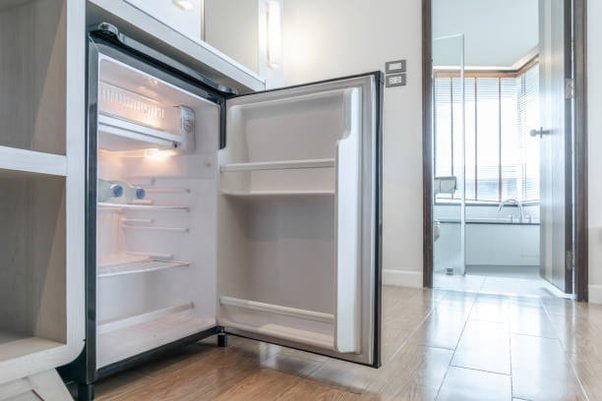Mini fridges are popular for their convenience and compact size, making them an ideal choice for dorm rooms, offices, and small apartments. However, one common issue that many users face is the noise level these appliances can generate. At TheKitchenApplianceDad.com, we understand how annoying a noisy mini fridge can be, especially in environments where silence is golden. In this blog post, we will explore the various reasons why your mini fridge might be louder than usual and how you can potentially fix or mitigate these noises.
Before diving into the specifics of the noises, it’s important to grasp how a mini fridge operates. Like standard refrigerators, mini fridges use a compressor, condenser coils, and an evaporator to cool the interior. The compressor is the heart of your mini fridge’s cooling system, and it’s also typically the primary source of noise.

The compressor cycles on and off to maintain the temperature inside the fridge. When it kicks on, it can cause slight vibrations, which might be more noticeable if the fridge isn’t level or if it’s placed directly on the floor without any damping material underneath. Placing your mini fridge on a mat or adjusting its feet for level can significantly reduce these vibrations.
Over time, parts of your mini fridge can loosen, particularly if it is moved frequently. Loose components can rattle during compressor cycles, contributing to the noise. Regular maintenance checks to tighten screws and fittings can help keep the noise down.
The condenser coils can sometimes be the culprit behind your noisy mini fridge. If the coils are dirty, the fridge has to work harder and longer, which can cause it to be louder. Additionally, if the coils are not securely attached, they can vibrate. Cleaning and securing the condenser coils can often solve this problem.
Frost build-up can occur if the door is not sealing properly or if the fridge is set to a very low temperature. This build-up can lead to increased strain on the compressor and fan, leading to louder operation. Regularly defrosting your mini fridge and ensuring a good seal on the door can mitigate this issue.
If you’ve tried all the above steps and your mini fridge is still excessively loud, it might be time to call in a professional. A noisy compressor or a faulty motor, which are complex to replace, could be the issue. Professional appliance repair technicians can provide a more thorough diagnosis and repair.
By understanding the common causes of noise in your mini fridge and how to address them, you can enjoy the convenience of your appliance without the unwanted ruckus. Remember, regular maintenance is key to keeping your mini fridge running quietly and efficiently. For more tips and advice on all things appliances, keep reading TheKitchenApplianceDad.com.

